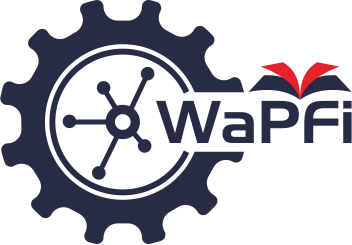Pengembangan modul digital berbasis project based learning (PjBL) pada materi fluida statis
Abstract
In the era of digitalization, teaching modules are self-learning materials that contain a series of learning experiences. In the context of the development of information technology, modules in the form of books have been transformed into digital modules or electronic modules used in online learning. In Indonesia, the independent curriculum emphasizes the importance of keeping up with technological developments in an effort to improve the quality of education. It promotes a relaxed, comfortable and enjoyable learning atmosphere, focusing on creative thinking and enhancing learners' character and natural talents. In an effort to integrate the project-based learning model with sway-assisted digital modules, researchers developed a Project Based Learning (PjBL)-based sway-assisted digital module for Static Fluid material. Where there are 40 respondents of students in one of the high schools in Jakarta 42.9% of students find it difficult and the media used in learning Static Fluid material is less interesting. The purpose of this research is to create a PjBL-based digital module that is suitable for physics learning. Researchers used the Research and Development (R&D) research method by applying the ADDIE model, which consists of five stages: (1) Analysis, (2) Planning, (3) Development, (4) Implementation, and (5) Evaluation. This digital module can be accessed easily through gadget devices or PCs, and students can use it independently to improve students' understanding of Static Fluid material.
Downloads
References
Dewi M. S. A., Lestari N. A. P. (2020). E-modul interaktif berbasis proyek terhadap hasil belajar siswa. Jurnal Imiah Pendidikan dan Pembelajaran 4 (3)
Mulyatiningsih E. (2013). Metode Terapan Bidang Pendidikan. Bandung : Alfabeta.
Sakliressy, M. T., Sunarno, W., & Nurosyid, F. (2021). Students scientific attitude in learning physics using problem based learning model with experimental and project methods. Jurnal Ilmiah Pendidikan Fisika Al-Biruni, 10(1), 59-70.
Harefa, N., Silalahi, N. F. D., Sormin, E., Purba, L. S. L., & Sumiyati, S. (2019). The difference of students’ learning outcomes with project based learning using handout and sway Microsoft 365. Jurnal Pendidikan Kimia, 11(2), 24-30.
Rahimah, R. (2022). Peningkatan kemampuan guru SMP negeri 10 kota tebing tinggi dalam menyusun modul ajar kurikulum merdeka melalui kegiatan pendampingan tahun ajaran 2021/2022. ANSIRU PAI:Pengembangan Profesi Guru Pendidikan Agama Islam, 6(1), 92-106.
Rahayu, R., Rosita, R., Rahayuningsih, Y. S., Hernawan, A. H., & Prihantini, P. (2022). Implementasi Kurikulum Merdeka Belajar di Sekolah Penggerak. Jurnal Basicedu, 6(4), 6313-6319.
Riska, Apriani, & Radite. (2018). Penerapan Model Pembelajaran Project Based Learning (Pjbl) Untuk Meningkatkan Hasil Belajar Peserta Didik Kelas Xi Ipa 1 Sma Kristen Yabt Pada Materi Sistem Koloid. Chemistry Education Journal.
Irman, S. (2020). Validasi modul berbasis project based learning pada mata pelajaran simulasi dan komunikasi digital. Jurnal Ilmiah Pendidikan Dan Pembelajaran, 4(2), 260-269.
Selviza, S., Yogica, R., Ristiono, R., & Selaras, G. H. (2022). Validitas Media Presentasi Menggunakan Microsoft Sway Bermuatan Pendekatan Kontekstual tentang Materi Keanekaragaman Hayati. Journal on Teacher Education, 4(1), 356-364.
Sugiyono. (2019). Metode Penelitian Kuantitatif dan R& D. Bandung: Alfabeta.
Syafruddin N. & Adriantoni (2016) Kurikulum Pembelajaran. Jakarta: Rajawali Press
Wenti M.M, & Rosalinda S.S. (2020). Pengaruh Model Discovery Learning dan Project-based Learning Terhadap Keterampilan Berpikir Kritis Siswa. Journal for Physics Education and Applied Physics.
Zul F. W. & Yerizon (2022). Pengembangan Bahan Ajar Pada Sofware G-Suite For Education Untuk Meningkatkan Kemampuan Berfikir Kritis Siswa Kelas VIII. Journal of Science Education. 6(2):484-492.






